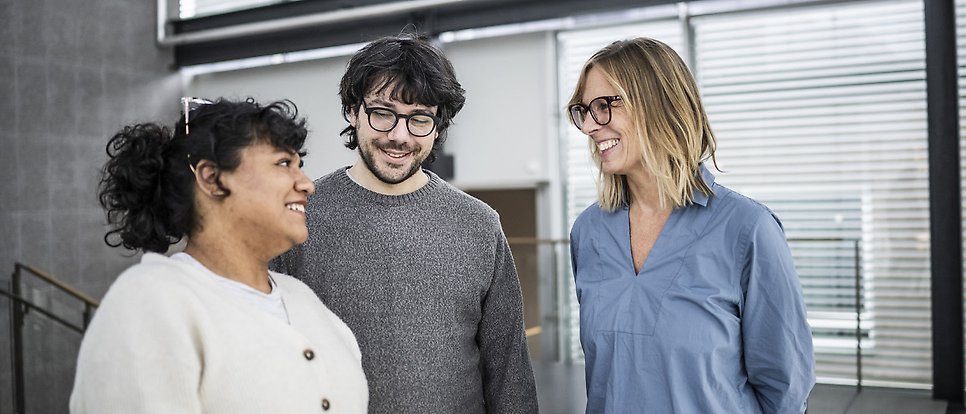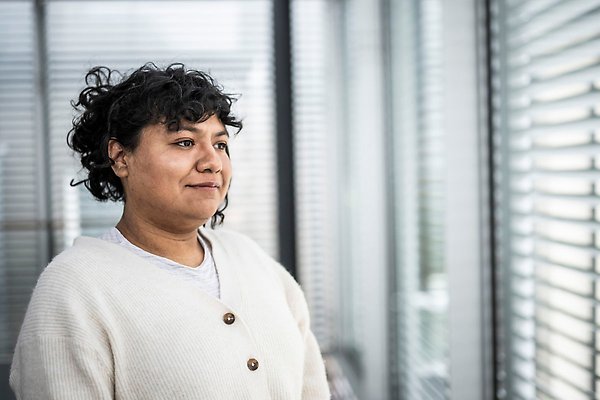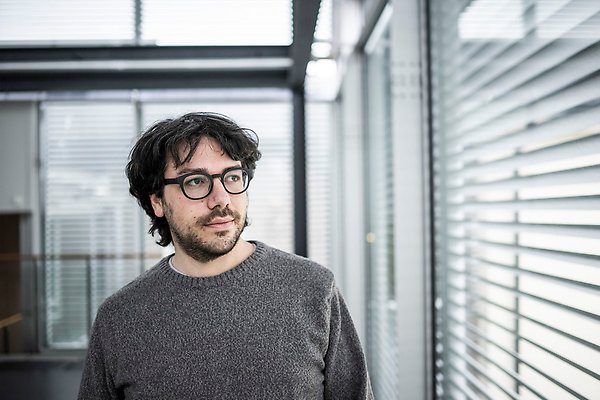Talking to people rarely heard on climate issues

Doctoral students Metztli Hernández García and Matias Menalled will study how people are affected by climate change in different parts of Argentina. Here they are shown with principal supervisor Susann Baez Ullberg. Photo: Johanna Säll/BILDBYRÅN
How is climate change being addressed in different parts of the world? The C-URGE project has been running since last autumn, in which anthropologists explore how people relate to the urgency of global warming.
Climate change is often talked about in scientific terms. It involves CO2, rising temperatures and melting ice sheets. But it will also affect us humans who form part of this ecosystem, and that requires a different kind of science.
“The broader social sciences and humanities, particularly anthropology, have the ability to show how different social groups and people are affected by climate change. We also have methods to explore how they manage, engage and strive for change,” explains Susann Baez Ullberg, Docent in Cultural Anthropology at Uppsala University.
She is one of the lead researchers in the EU-funded project C-URGE – Anthropology of Global Climate Urgency. The project aims to explore how different parts of the world are responding to climate change and the fact that these changes are happening so quickly, requiring urgent action. What does this urgency do to people and what does it mean for different governmental and non-governmental organisations? C-URGE is a collaboration between four universities in Europe. To conduct the actual research, each higher education institution has recruited doctoral students from both European and non-European countries.
Uppsala doctoral students on fieldwork in Argentina
Argentinian Matias Menalled is one of the doctoral students employed at Uppsala University. He will be studying how people involved in the production of rice and forestry in north-eastern Argentina manage and respond to drought and water shortages. His fellow doctoral student, Metztli Hernández Garcia from Mexico, will examine how indigenous peoples in north-western Argentina are affected by and engage in emissions trading.

Hernández Garcia will travel to the dry forest areas of Chaco and Formosa in northern Argentina. There she will study how indigenous people and others relate to emissions trading. Photo: Johanna Säll/BILDBYRÅN
The two doctoral students will travel to locations in each region to engage in classic anthropological fieldwork, such as talking to different actors and following them in their day-to-day work over a period of nine months.
Hernández Garcia is looking forward to gaining skills that will help her give a voice to people whose perspectives are rarely heard.
“I hope to become better at conveying different perspectives and opinions and learn more about legislation and how policies are made. Ultimately, I want to help policymakers engage in dialogue with both experts and people on the ground,” says Hernández Garcia.

Menalled will travel to the wetlands of north-eastern Argentina to study how people working in rice production and forestry deal with drought and water shortages. Photo: Johanna Säll/BILDBYRÅN
Other crises competing with climate change
The two doctoral students both came to Uppsala last autumn. Menalled says he has noticed that the climate issue is being discussed here to quite a large extent, especially in academia. As an example, he names what he has seen on the University’s intranet where trains and zoom are recommended over flights and live conferences.
“In Argentina, climate issues are being discussed, but we also face other pressing challenges such as political and economic crises, poverty and food shortages. While there is great concern about the environment, there are other societal problems that compete with climate change.”
Baez Ullberg, who has spent much of her career conducting research in Argentina, has noticed another difference between the countries.
“In Sweden, the debate is more focused on the individual. We should recycle, buy organic food and avoid flying. This is not surprising since we are such an individualised society. What is not talked about as much, except among activists, is structural responsibility; what both politics and businesses should contribute.”
Sandra Gunnarsson
C-URGE – Anthropology of Global Climate Urgency
The network consists of Uppsala University, three other European universities and six non-profit organisations. A total of ten doctoral students have been recruited to conduct research on different themes and geographical locations in Argentina, Italy, Sri Lanka, Kenya, Congo and Germany. The research project is funded by the EU.
